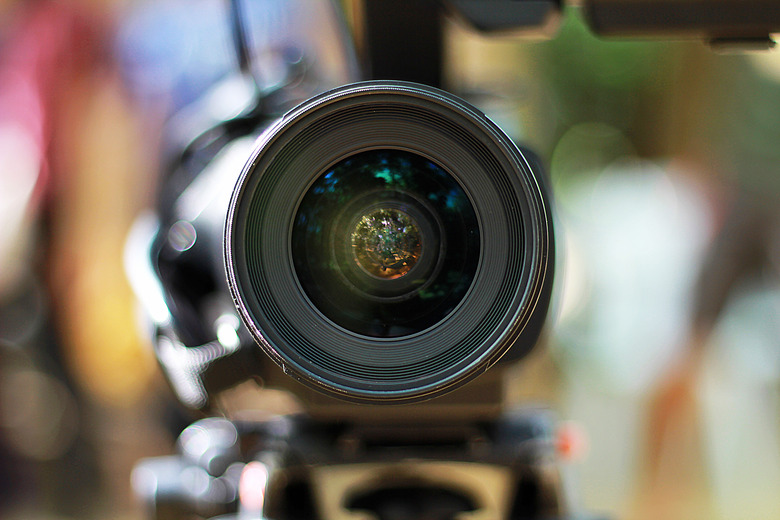How Does Lens Thickness Affect Focal Length?
The focal length of the lens tells you how far away from the lens a focused image is created, if light rays approaching the lens are parallel. A lens with more "bending power" has a shorter focal length, because it alters the path of the light rays more effectively than a weaker lens. Most of the time, you can treat a lens as being thin and ignore any effects from the thickness, because the thickness of the lens is much less than the focal length. But for thicker lenses, how thick they are does make a difference, and in general, results in a shorter focal length.
The Lens Maker’s Equation
The lens maker's equation describes the relationship between the thickness of the lens and its focal length (f):
\(\frac{1}{f}=(n-1)(\frac{1}{R_1}-\frac{1}{R_2}+\frac{(n-1)t}{nR_1R_2})\)
There are lots of different terms in this equation, but the two most important things to note are that the t stands for the thickness of the lens, and the focal length is the reciprocal of the result on the right-hand side. In other words, if the right-hand side of the equation is larger, the focal length is smaller.
The other terms you need to know from the equation are: n is the refractive index of the lens, and R1 and R2 describe the curvature of the lens surfaces. The equation uses "R" because it stands for radius, so if you extended the curve of each side of the lens into a whole circle, the R value (with subscript 1 for the side that the light enters the lens at and 2 for the side it leaves the lens at) tells you the radius of that circle. So a shallower curve will have a larger radius.
Thickness of the Lens
The t appears in the numerator of the last fraction in the lens maker's equation, and you add this term onto the other parts of the right-hand side. This means that a larger value of t (i.e., a thicker lens) will make the right-hand side have a bigger value, provided the radii of either half of the lens and the refractive index remain the same. Because the reciprocal of this side of the equation is the focal length, this means that a thicker lens will generally have a smaller focal length than a thinner lens.
You can understand this intuitively because the refraction of light rays when they enter the glass (which has a higher refractive index than air) allows the lens to perform its function, and more glass generally means more time for the refraction to occur.
The Curvature of the Lens
The R terms are a key part of the lens maker's equation, and they appear in every term on the right-hand side. These describe how curved the lens is, and all of them appear in the denominators of the fractions. This corresponds to a larger radius (i.e., a less curved lens) producing a bigger focal length in general. Note that the term that only contains R2 is subtracted from the equation, though, which means a smaller R2 value (a more pronounced curve) reduces the value of the right-hand side (and thus increases the focal length), while a larger R1 value does the same. However, both radii appear in the last term, and less curvature for either part in that case increases the focal length.
The Refractive Index
The refractive index of the glass used in the lens (n) also impacts on the focal length, as shown by the lens maker's equation. The refractive index of glass ranges from around 1.45 to 2.00, and in general a larger refractive index means the lens bends light more effectively, thus reducing the focal length of the lens.
Cite This Article
MLA
Johnson, Lee. "How Does Lens Thickness Affect Focal Length?" sciencing.com, https://www.sciencing.com/lens-thickness-affect-focal-length-12046893/. 14 December 2020.
APA
Johnson, Lee. (2020, December 14). How Does Lens Thickness Affect Focal Length?. sciencing.com. Retrieved from https://www.sciencing.com/lens-thickness-affect-focal-length-12046893/
Chicago
Johnson, Lee. How Does Lens Thickness Affect Focal Length? last modified August 30, 2022. https://www.sciencing.com/lens-thickness-affect-focal-length-12046893/
